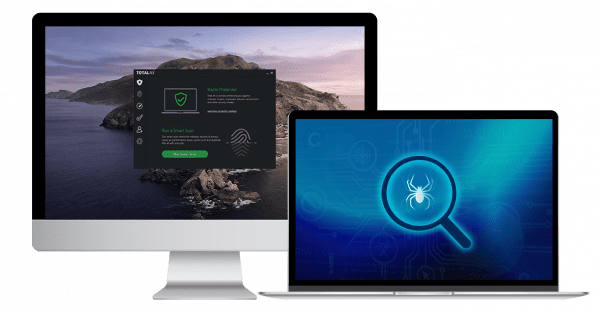Best Free Virus Scanners 2024
Compare the Best Antivirus Software for all your Devices
- Complete Protection from Spyware & Malware
- Compare Top Virus Scanners
- Virus Scan & Removal
- Identify & Remove all Threats
- 30 day Money-Back Guarantee

2024 Editor’s Pick
1

- #1 Antivirus Provider 2023
- Removes Viruses, Adware, & Malware
- Includes Firewall Protection
- Advanced Ransomware Protection
Available on:

outstanding
2

- Includes Smartphone Antivirus
- Advanced Firewall included in all plans
- Compatible with all operating systems
- Perfect for home users
excellent
3

- Compatible with all devices
- Advanced Firewall included
- Removes Viruses, Adware, & Malware
- Spam & phishing e-mail blocker
Great
4

- One solution to protect your devices
- World-class virus and malware protection
- Includes Smart Firewall and Password Manager
- Darkweb Monitoring powered by LifeLock
5

- One of the most trusted around
- Compatible with all devices
- Perfect for home users
- Advanced Firewall included
#1 2023 Editor’s Pick

FREE
- #1 Antivirus Provider 2023
- Removes Viruses, Adware, & Malware
- Includes Firewall Protection
- Advanced Ransomware Protection
Available on:

2

$29.00
- Includes Smartphone Antivirus
- Advanced Firewall included in all plans
- Compatible with all operating systems
- Perfect for home users
3

$19.00
- Compatible with all devices
- Advanced Firewall included
- Removes Viruses, Adware, & Malware
- Spam & phishing e-mail blocker
4

$34.99
- One solution to protect your devices
- World-class virus and malware protection
- Includes Smart Firewall and Password Manager
- Darkweb Monitoring powered by LifeLock
5

$44.99
- One of the most trusted around
- Compatible with all devices
- Perfect for home users
- Advanced Firewall included
What is an Antivirus Software?
An antivirus is a software program designed to detect and remove malware from a computer or mobile device. Traditional antiviruses scan your files against a built-in malware database, flagging unsafe files that match the database. More advanced antivirus programs use machine learning, heuristic analysis, and cloud-based malware directories to detect and remove zero-day threats and very sophisticated malware. All of the best antiviruses offer real-time protection, so they scan every file before it executes to ensure malware never even starts running on your device.
Why do you need an Antivirus?
In recent years, people have become increasingly reliant on electronic devices. It is crucial now, more than ever, to have adequate security to protect your personal information from viruses and hackers. That’s where antivirus software comes in. Antivirus software, also known as anti-malware, is a computer program used to prevent, detect, and remove malicious software from your computers, tablets, and mobile devices.
There are many different types of malware, viruses being the most well-known. Here we have highlighted some of the lesser-known types of malware that all security-conscious users should be familiar with. To learn more, follow our blog for the latest updates and information.
Disclaimer
AntivirusAdviser’s reviews are the honest opinions of our team of expert cybersecurity professionals. Our reviews are neither paid for nor sponsored by antivirus providers, although we may earn an affiliate commission through some of our referral links.
At AntivirusAdviser, our goal is to provide transparent, informative, and easy-to-understand reviews of antivirus solutions for all devices and operating systems. We hope these reviews will give you the insights needed to make an informed decision about your antivirus purchase.
Why Everyone Needs a Virus Scanner in 2021
Virus scanners can protect you, and anyone in your home using your PC or Mac, from malicious software, viruses, malware and other serious threats. Every year, billions of malware attacks occur, reaching as high as 10.5 billon in 2018. Protecting your data, files and identity safe requires a proactive approach to security. If you’re not taking your security seriously, you’re putting your privacy, identity and personal files at risk of being compromised. Identity theft impacts millions of people per year that could have protected their identity with a reliable, trustworthy virus scanner.
Why Having a Virus Scanner is Important
Viruses are malicious software, created with the goal of compromising your computer, stealing your identity or damaging your system. Protecting against viruses allows you to:
- Reduce your risk of identity theft
- Stop viruses that damage your computer
- Reduce the risk of your passwords being stolen
- Etc.
An antivirus is designed to run in the background, or on demand, to scan for malicious programs on your system. When you install an antivirus, you’re choosing to protect your files, whether photos, videos or system files.
If left unprotected and on a network of computers, a virus can transfer to the entire network, causing a significant risk to all connected devices.
The right antivirus will allow you to scan removable devices, defends against data thieves and hackers and can also block ads and spam. Most top-tier antiviruses also protect against spyware and phishing attacks.
Firewall protection, which monitors all incoming and outgoing traffic, may also be included to provide additional protection to your system.
And your virus scanner may even offer advanced web protection by limiting access to websites that are malicious or that have been compromised. If you use the Internet, like most people do, you rely on your computer to access your social media accounts, bank accounts and email.
The problem is that one single virus or malware can cause your information to get in the hands of a hacker. Every day, millions of people put their information at risk unknowingly by not having a virus scanner installed.
An antivirus is one of the most basic security measures that you can take to keep your data and information safe online. When you install and use an antivirus properly, you’re choosing to protect your data from current and future threats.
How to Scan for Viruses on Windows and Mac
A virus scanner is only worth installing if you actually:
- Run the virus scanner, or
- Set up real-time scanning, and
- Keep the antivirus software updated
Every antivirus is slightly different, offering a variety of features and a very similar scanning process. If you’ve decided to start protecting your systems and devices against viruses, you need to know how to properly scan for viruses.
We’re going to cover the scanning process for Windows and Mac using one of the leading virus scanners: TotalAV.
You can also follow a similar process using ScanGuard and PCProtect to scan your system for viruses.
Note: You must first download and install AV. Each antivirus software has an easy install process that takes minutes to complete.
Scan for Viruses on Windows Using TotalAV
TotalAV makes it as easy as possible to scan your PC for viruses. Ideally, you’ll set your antivirus to scan for viruses in real-time. When you allow for real-time scanning, you’re able to detect and remove viruses before they’re executed.
You can set TotalAV to run automatically in the background by:
- Opening up TotalAV
- Clicking the setting’s cog (located at the top right of the app)
- Navigating to the “Scan Settings” page
- Checking off the automatic scanning option
When you restart your PC, TotalAV will run in the background and allow you to be confident that when you visit a site or download a file, the scanner will analyze the file for a virus or malware.
If you want to run a manual scan, there are two main options to choose from once you open up the program:
- Quick Scan. A fast scan option that will analyze all of your system’s most important files
to check for viruses. Quick scan ought to be used sparingly because it doesn’t scan every
file on your computer. - System Scan. The system scan option is the best option for a robust virus scanner because it will go through all of the files on your system. System scans take longer to complete, but they offer the most thorough virus scanning possible.
If you detect a virus, you’ll be alerted to either remove the virus or quarantine it to stop the potential threat to your system. TotalAV recommends that you quarantine a file if it’s detected as a virus unless you’re running out of disk space.
Scan for Viruses on Mac Using TotalAV
Mac will follow a similar scanning option. Since TotalAV offers the same application across multiple devices, it’s one of the easiest antiviruses to use.
Advanced Virus Scanning and Scheduling
TotalAV will, by default, run a weekly scan that will check your system for viruses. A weekly scan is sufficient for moderate computers users and will provide decent overall protection. Users that rely on their computer for work or are on their computer daily may want to adjust the scan frequency settings.
When the antivirus is open, navigate to the settings menu by clicking the gear icon on the
sidebar.
The menu will pop up and allow you to adjust your TotalAV’s settings. Click on “Antivirus Scans” and then you’ll be allowed to change your scheduled scans as needed. Navigate to the “Run scheduled antivirus scans” and click on the dropdown box.
You’ll be able to choose a scheduled scan to run:
- Weekly
- Fortnightly
- Monthly
Scans can either be a quick scan or a full scan. A full scan offers the best protection, although it’s a resource intensive process.
If you’re just an average computer user, TotalAV recommends a quick scan be run weekly with real-time scanning on. The quick scan will check your system’s most important files while taking up less resources.
Computer or Mac users that are on their systems sparingly will appreciate the quick scan because it completes faster and puts much less stress on the system.
You can, and should, also choose to scan removable drivers. If you use a USB driver or another type of removeable drive, you’ll want to scan every drive that you plug into the system so that you’re fully protected against viruses.
Using a virus scanner reduces your risk of being the 1-in-3 people that have viruses and malware on their systems. Installation is quick, and scanning can be done automatically to provide 24/7 protection to your system.
